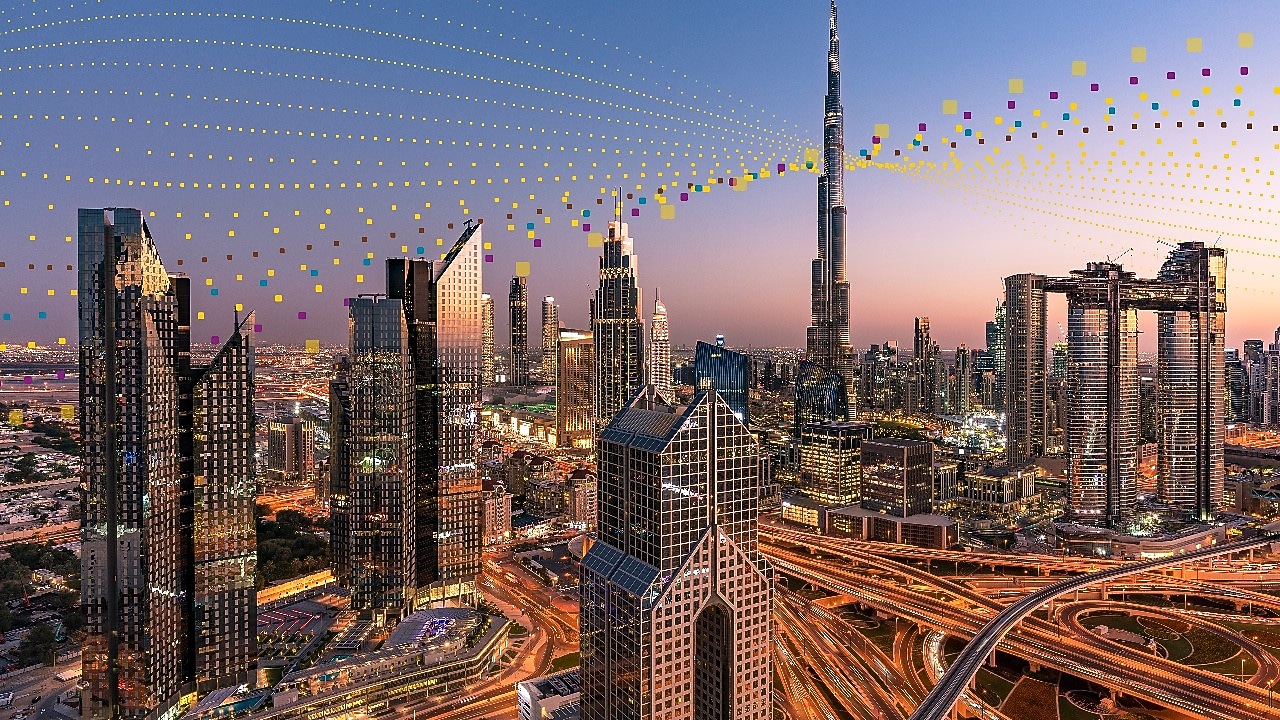
What are Shell Scenarios?
Shell has been developing possible visions of the future since the early 1970s, helping generations of Shell leaders, academics, governments and businesses to explore ways forward and make better decisions. Shell Scenarios ask “what if?” questions, encouraging leaders to consider events that may only be remote possibilities and stretch their thinking.
A word on scenarios
What we present here are scenarios. To get the most from them, it is important to know what these are and what they are not. They are an exploration of how the world could possibly evolve under different sets of assumptions. They are informed by data, constructed using models and contain insights from leading experts in the relevant fields. The process of creating scenarios involves considering different versions of possible futures. Some of these may seem unlikely or even surprising, yet they could still be possible. Other scenarios explore the possible outcomes of choices the world already appears to be making. This perspective offers the reader the chance to evaluate those choices. It is by exploring the assumptions behind such possible futures that readers can expand their world view and consider the options for significant change.
The value to Shell of producing scenarios is to help senior management think about the long-term challenges the business could face. In this way, the thinking in Shell’s scenarios may influence the company’s strategy – as one of many inputs – but that is as far as it goes: scenarios are not expressions of Shell’s strategy, they are not Shell’s business plan and they do not necessarily reflect the thinking or behaviour of the business. Shell also publishes some of its scenario thinking to help governments, academia and business to think about the long-term challenges that they, and the world at large, could face.
As useful as scenarios are, however, they are not created by using a crystal ball. So, while scenarios may contain a great deal of valuable information and insight, they are absolutely not predictions or expectations of what will happen, or even what will probably happen. Nor are they statements of what should happen. In short, scenarios are possible worlds built from incomplete and uncertain information. That is true of all scenarios, not just those created by Shell. All scenarios probably hold truth, but all of them are likely to be wrong in one way or another.
Ultimately, for all readers, scenarios are intended as an aid to making better decisions. They stretch minds, broaden horizons and explore assumptions.
For a more formal explanation of scenario thinking, visit – the definitions and cautionary note below.
Learn what others say about the importance of Shell Scenarios
Read the transcript
Read the transcript
Title: Impact and Influence of Scenarios
Duration: 5:17 minutes
[Tim Harford in vision:]
Caption: Tim Harford, Author, columnist for the Financial Times and Presenter on Radio 4
“So, I'm very interested in bringing together different ideas and I found the scenario process was great for that. You wouldn't just stick in your familiar silo of economics, you'd be talking to people outside your area of expertise and getting different perspectives and that's really enriched my writing.”
[Philip Bobbitt in vision:]
Caption: Herbert Wechsler Professor of Jurisprudence at Columbia University
“I think there's an enormous necessity for this kind of approach because…”
[Philip Bobbitt voice over:]
“…our futures right now are unpredictable.”
[Video footage:]
Aerial view, pan along a city street in a high-rise city
[Philip Bobbitt in vision:]
“Perhaps the worst temptation in scenario planning is to think…”
[Philip Bobbitt voice over:]
“…that it's about the future.”
[Video footage:]
Billboard saying: looking ahead with Hydrogen; in the background another billboard with Shell Pecten
[Philip Bobbitt in vision:]
“It's really not.”
[Philip Bobbitt voice over:]
“It's really about the present It's about how…”
[Video footage:]
Busy city street, two buses coming towards camera, cyclist moves into shot from camera right
[Philip Bobbit in vision:]
“…you make decisions now.”
[Paul J. H. Schoemaker in vision:]
Caption: Paul J. H. Schoemaker Ph.D, Research Director Mack Center for Technological Innovation, The Wharton School, University of Pennsylvania
“Scenario planning can be used for multiple purposes. I think the most common one that I see, and that we participate in, is simply stress testing an existing strategy. Secondly, you can try to come up with new growth options, not the existing strategy, but make the strategy better. And thirdly…”
[Paul J. H. Schoemaker voice over:]
“… you can use it to just educate people in the organisation so you have a framework for better dialogue.”
[Video footage:]
Two engineers, overalls, safety gear, discussing piping at a plant, followed by two further engineers in front of plant in distant background
[Amory Lovins in vision:]
Caption: Amory Lovins, Chairman & Chief Scientist Rocky Mountain Institute
“Shell scenarios are a unique resource for all of us who think about…”
[Amory Lovins voice over:]
“…the energy future.”
[Video footage:]
Wide shot of motorist at petrol station as he inserts the petrol pump nozzle into his car, followed by close up as the nozzle goes in
[Amory Lovins in vision:]
“Like all good scenarios, and indeed many of them built on that model, they're not predictions, they're a vehicle for telling stories.”
[Amory Lovins voice over:]
“But the stories they tell, to change the picture of reality in the minds of the leaders reading them…”
[Video footage:]
Wide of a busy city street in a low-rise city, followed by a hydrogen car from front on as it turns a corner, then another car, emblazoned with Shell Pecten, travelling across camera on a busy city street at night
[Amory Lovins in vision:]
“…are often provocative, fresh, and of course the underlying trick is to choose the axes correctly. That's the hardest part. Once you ask the right questions…”
[Amory Lovins voice over:]
“…the answers tend to become self-evident. I think it's been a vital intellectual contribution to the world of energy. I can't imagine our…”
[Video footage:]
Several mopeds/small motorcycles move across a city street at night, followed by wide shot of a long avenue in a high-rise city, then street level of traffic at night
[Amory Lovins in vision:]
“…having the progress that we now see in the global energy transformation without this important foundation.”
[Peter Ho in vision:]
Caption: Peter Ho, Senior Advisor, Centre for Strategic Futures and Former Head of Civil Service, Singapore
“Well, Shell has played a very critical role, especially in the early years, in helping…”
[Peter Ho voice over:]
“…the Singapore government develop scenario planning as a basic…”
[Video footage:]
Wide shot of Singapore high rise from street level, then a busy narrow Singapore street of small shops
[Peter Ho in vision:]
“…tool for strategic…”
[Peter Ho voice over:]
“… planning. Without scenario planning, we would not have gone as far as we have come in terms of our…”
[Video footage:]
Boat passes left to right across camera on river, Singapore high seen in background, followed by pan up Singapore building, bus passes across shot
[Peter Ho in vision:]
“…ability and capacity to plan for the future.”
[Koosum Kalyan in vision:]
Caption: Koosum Kalyan, Chairman of Edgomerap Energy and Chairman of the Thabo Mbeki Foundation
“You start from the premise of not what you know...it's what you don't know...and plan for those uncertainties. So, scenarios became part of everybody's planning processes…”
[Koosum Kalyan voice over:]
“…in South Africa. Soon after the Mont Fleur scenarios…”
[Video footage]
Speeded up pan along a South African highway, Table Mountain and Cape Town in the background
[Koosum Kalyan in vision:]
“…trade unions, the NUM, COSATU were using it in their organisations. But what it allowed the government to do, and the people of South Africa, is to think about the future…”
[Koosum Kalyan voice over:]
“…from the same premise. All that Shell wanted to say was that…”
[Video footage:]
African street painting fixed in foreground as camera pans around on street below a hill
[Koosum Kalyan in vision:]
“…we have a tool, and the methodology that we use in scenario planning can be used anywhere in the world.”
[Professor Dr Bjorn Stigson in vision:]
Caption: Professor Dr Bjorn Stigson, Chairman, Stigson & Partners AB
“I think it has been used by a number of companies…”
[Professor Dr Bjorn Stigson voice over:]
“…for complex issues where you need to find a language to talk about things.”
[Video footage:]
People on a worksite with small three-wheeled work vehicles, car moves across street in foreground, followed by people walking in a city street
[Professor Dr Bjorn Stigson in vision:]
“So what Shell started, once upon a time, has spun off a whole industry and you have given us…”
[Professor Dr Bjorn Stigson voice over:]
“…a picture, a story about the future world…”
[Video footage:]
Pan up exterior of high rise glass building
[Professor Dr Bjorn Stigson in vision:]
“…that is highly relevant for our thinking about the OECD.”
[Pei Minxin in vision:]
Caption: Pei Minxin, Professor of Government, Claremont McKenna College
“The standard of living is rising in the developing world, and with that…”
[Pei Minxin voice over:]
“…the demand for energy will grow as well.”
[Video footage:]
City street, motorcycles and a car travel through shot
[Pei Minxin in vision:]
“So, if there's one word to describe the future of energy…”
[Pei Minxin voice over:]
“…it's bright, but complex.”
[Video footage:]
Wide time-lapse of London Eye at night as seen from Shell Centre, followed by close up of edge of London Eye with Houses of Parliament in the background
[Pei Minxin in vision:]
“Preparing for different futures does not require upfront investment right away. It requires intellectual preparation.”
[Napier Collyns in vision:]
Caption: Napier Collyns, Co-Founder, Global Business Network
“I think what the scenarios do is to…”
[Napier Colllyns voice over:]
“…make you realise that there will be many unexpected developments.”
[Video footage:]
Wide of low rise city, desert in background, followed by aerial shot of a city on a delta
[Napier Collyns in vision:]
“The one that's obvious today, is the fact…”
[Napier Collyns voice over:]
“…all over the world now we're having shale developments for Berita oil and for natural gas, which has changed the structure of oil and energy developments worldwide.”
[Video footage:]
The City of London high rises seen from the Thames river bank, followed by a pan across the top of a high-rise city with sea in the background, then close up of a man re-fuelling a bus from a Shell pump, then Shell Fuel Cell Bus travelling through a European town, then a low level support bridge over a river with large official buildings in the background, then the Jesus statue above Rio de Janeiro
[Napier Collyns in vision:]
“I think it's essential…”
[Napier Collyns voice over:]
“…that we keep looking for oil and gas, and luckily in the United States, we've found oil and gas unexpectedly.”
[Video footage:]
Cars travelling along an American city street towards camera left, then cars travelling along an American city street to camera right, then further cars travelling in both directions along a city street with a hill in the background
[Napier Collyns in vision:]
“When I say unexpectedly, even then the most interesting scenarios…”
[Napier Collyns voice over:]
“…ten or fifteen years ago, we weren't really thinking…”
[Video footage:]
Sign for Shell Hydrogen Fuel station Ventristoo
[Napier Collyns in vision:]
“…of the kind of ways…”
[Napier Collyns voice over:]
“…we've developed oil and gas since.”
[Video footage:]
Several engineers, overalls, safety gear, at a plant
[Michael Jefferson in vision:]
Caption: Michael Jefferson, Visiting Professor, Department of Economics & International Studies, University of Buckingham
“We are dealing so often with unknowledge...and unforeknowledge.”
[Michael Jefferson voice over:]
“So with that…”
[Video footage:]
Heavy traffic travels in both directions along a wide city avenue, followed by shot of a car travelling left to right across screen, parked cars, police officer, cinema in the background
[Michael Jefferson in vision:]
“…clear idea that we don't know the future, we can't just forecast.”
[Michael Jefferson voice over:]
“We can't create a model, turn a handle.”
[Video footage:]
Pedestrians in a crowded city street, woman with smog mask walks towards camera
[Philip Bobbitt in vision:]
“I think scenario planning is perhaps the most important analytical tool we have, and Shell is...and has been...the most important innovator in that process.”
[Background music fades:]
Graphic: Shell Pecten
Text: ©Shell International 2013
Fade to black

40 years of Shell Scenarios
Published in 2013, this book is a commemoration of four decades of the scenario making practice in Shell. It contains case studies on significant scenarios that have helped expand our leaders thinking on economic, political and social challenges of their time.




